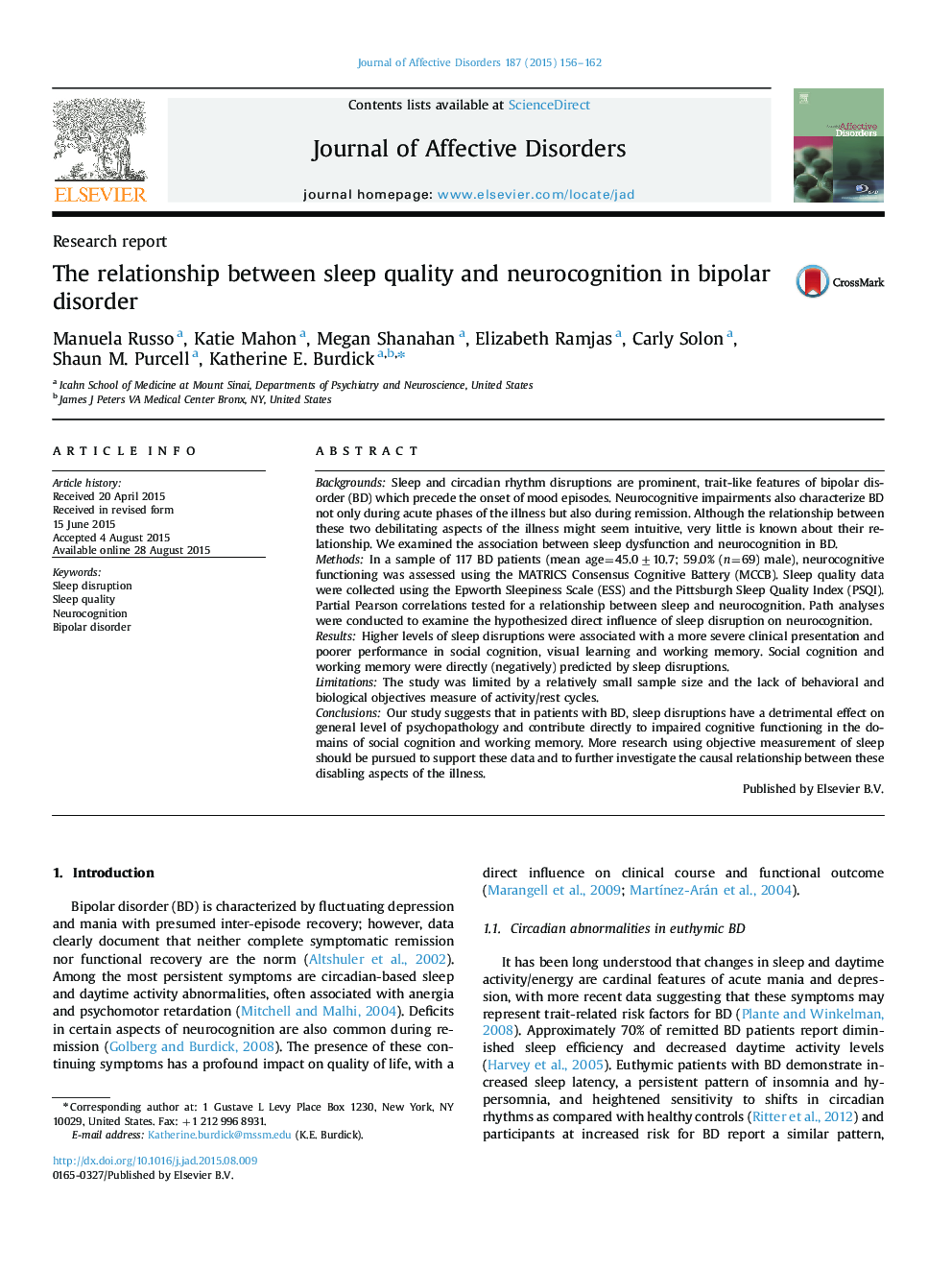| کد مقاله | کد نشریه | سال انتشار | مقاله انگلیسی | نسخه تمام متن |
|---|---|---|---|---|
| 6230986 | 1608138 | 2015 | 7 صفحه PDF | دانلود رایگان |
- Sleep disruptions in BD are correlated with a more severe clinical presentation.
- Poorer sleep correlated with worse social cognition, visual and working memory.
- Social cognition and working memory were negatively predicted by sleep disruptions.
BackgroundsSleep and circadian rhythm disruptions are prominent, trait-like features of bipolar disorder (BD) which precede the onset of mood episodes. Neurocognitive impairments also characterize BD not only during acute phases of the illness but also during remission. Although the relationship between these two debilitating aspects of the illness might seem intuitive, very little is known about their relationship. We examined the association between sleep dysfunction and neurocognition in BD.MethodsIn a sample of 117 BD patients (mean age=45.0±10.7; 59.0% (n=69) male), neurocognitive functioning was assessed using the MATRICS Consensus Cognitive Battery (MCCB). Sleep quality data were collected using the Epworth Sleepiness Scale (ESS) and the Pittsburgh Sleep Quality Index (PSQI). Partial Pearson correlations tested for a relationship between sleep and neurocognition. Path analyses were conducted to examine the hypothesized direct influence of sleep disruption on neurocognition.ResultsHigher levels of sleep disruptions were associated with a more severe clinical presentation and poorer performance in social cognition, visual learning and working memory. Social cognition and working memory were directly (negatively) predicted by sleep disruptions.LimitationsThe study was limited by a relatively small sample size and the lack of behavioral and biological objectives measure of activity/rest cycles.ConclusionsOur study suggests that in patients with BD, sleep disruptions have a detrimental effect on general level of psychopathology and contribute directly to impaired cognitive functioning in the domains of social cognition and working memory. More research using objective measurement of sleep should be pursued to support these data and to further investigate the causal relationship between these disabling aspects of the illness.
Journal: Journal of Affective Disorders - Volume 187, 15 November 2015, Pages 156-162
